|
Have you ever felt hopeless? Have you ever watched helplessly as a dear friend or child, or even your spouse walked into damaging choices, and felt like the enemy was simply too powerful and too strong? Have you ever watched as people around you start dividing, fighting, arguing and treating one another as enemies? Have you ever felt like you wanted to fight, but you're not sure who to fight, and you don't seem to have any effective weapons or skills? Have you ever just felt like hiding in a hole, and waiting until it all blows over? What do we do when we are faced with impossible odds, failing leadership, aching needs, horrible oppressions, and a fight that is being forced on us, whether we can handle it or not? A number of years ago Jeff and I faced a business crisis. We had just completed our taxes, a project I look forward to with a bit of dread and procrastination, and we found that we owed a sum of money that we did not have saved up --$10,000. With our large family and many pressing needs, saving for an unknown amount throughout the year can be very difficult at times. We were concerned and looked through out Quickbooks to find any account still owing that we could see if they could pay sooner--but there was nothing. The days ran into one another continuously until April 15th was upon us, and still there was no money available. We had waited and prayed and waited again. This is the story we have today. In 1 Samuel 13, Saul, the new king of Israel, was scared. As he sat there with his son Jonathan, he was pondering all that he had...and all that he didn't. He had only three thousand men following him, and the people of Israel had been oppressed by the Philistines for many years. The Philistines would regularly raid Israel's villages, carrying of women and children as slaves and killing their men. Their enemy would take everything they had worked hard for, loved deeply, and fought like a drowning man to keep alive. Every time they would come up for air, they would be pushed back down. They felt like they were struggling just to survive each day, waiting to hear news of another family member or friend who had been taken down by their relentless enemy. In fact, the Philistines were shrewd about their oppression. They had gone through the land of Israel, killing all the blacksmiths who could create weapons. Year after year, in order to even have their harvesting tools sharpened, the men of Israel were forced to travel into the land of their enemies to have their tools sharpened—the enemy controlled their harvest, their defenses and their lives. The oppression had carried on for so many years, that the people had lost the concept of freedom. The men that were left, trembled. And Saul, he had made the wrong choice. He had thought it made sense at the time. He had thought it would fix it. But it only made things much, much worse. The prophet Samuel had told him to wait for him seven days, and Samuel would offer a sacrifice to the Lord asking for his help and deliverance. But as Saul had watched the men's confidence wane day after day, so had the men themselves. Saul had noticed fewer and fewer men in the camp, and his captains had reported that more of the men had gone into hiding—holes, thickets, pits, wells...anywhere to hang out until the Philistines went away. But the Philistines weren't going away. They had crowded day after day into the valley of Michmash until it seemed an impossible number---30,000 chariots, 6000 horsemen, and so many foot soldiers and people that it was like the sand on the seashore, way too many to count. Their enemies started sending raiding parties, three groups of them, toward the Northeast, west and southeast. Saul knew it was intended to draw him and his men out, but there was no way he could stop them all. So on the seventh Saul had made a decision. Samuel hadn't come yet, and there was a political crisis. He would offer the sacrifice himself. But it backfired. Samuel had come up just as he had finished offering the sacrifice, and had told him that God would no longer establish his kingdom...that God would give his kingdom to a man after God's own heart, and that he, this nameless man, would be commanded by God to be a Commander over His people. And then he left. Saul was frustrated. He looked around at the men who had watched his public humiliation, and saw the last vestiges of confidence evaporate from their eyes, leaving only a hopeless despair and terror. One by one, he watched them slip away from the camp. By the end of the day, there were only 600 men. 600 weaponless, defenseless, hopeless men. Often in our lives our spiritual enemy, satan, seems to have us cornered. He attacks and pillages, he goes after our jobs, our income, our homes, our children, our marriages, our churches, our country, and our dreams. He steals and kills and destroys everywhere he goes. We often notice how attacks often seem to come against multiple sides at a time. Perhaps your kid is struggling with bitterness, at the same time as you are diagnosed with a health problem. Perhaps your boss has laid you off, and you find that your best friend betrayed you. Maybe your spouse has left you and you're in a losing custody battle. Satan attacks our pastors and church leadership to take them out so that we won't know where to find our spiritual weapons, how to be trained to fight against him to protect our spirits and families from his constant and relentless attacks. He lies to us and convinces that his army is so vast, so numerous, so strong and so completely invincible that we haven't a hope. He goes after our weapons. The Philistines had murdered the blacksmiths, those who were skilled at crafting the weapons. The Bible tells us that the weapons of our warfare are mighty in God to the pulling down of strongholds, to make every thought captive to the obedience of Christ. What is our number one weapon? The Sword of the Spirit, the Word of God! The enemy goes after our time in the Word. He convinces us that knowing God’s Word is not all that important. He interrupts our quiet time with the Lord, the time when we have space to listen to the voice of the Spirit. He convinces us that sports, tv, work, yard work—everything that demands our attention—is more important than investing in knowing God’s Word with our families. He does everything he can to take out those who would teach the Word of God, to discourage, to steal their time, their finances and their health. All because the Word of God is powerful. It is a mighty weapon that advances against his agenda and pushes back on the gates of hell. Samuel seemed late. The enemy tries to point out that even God is late to this battle because God doesn't care and won't make time to help us. We wait, and wait, and wait...and when we don’t see God coming, we panic. We don't know what to do, so we try to fix it ourselves. Saul had an identity problem. His courage, morale and obedience to God's word would go up with the people's approval--and down with their disapproval. More than anything--more than God Himself, Saul wanted people to think well of him. To like him. To support him. And when he saw that they were scattering, he chose to directly disobey God to win back people's approval. The Apostle Paul addresses this in the New Testament, "Am I now," Paul asks, "trying to win the approval of men, or of God? Or am I trying to please people? If I were still trying to please people, I would not be a servant of Christ!" (Gal. 1:10). If we only do what it is right because other people will validate it, then when the time comes when it is crucial for our marriages, our families, our own spiritual relationship with God, we will sell out what is most important for what can never please God or give us victory over our enemy! We don't know what to do, so we hide. We hide in our streaming movies, we hide in our video games, we hide in our alcohol, our drugs, our fleeting friendships or intimate relationships. We hide in our sports, jobs, ambitions and goals. We hide in a monumental list of tasks that we hope will make us feel like we are going somewhere good. We hide in the praise and popularity of people who don't even know the real us hurting inside. We do these things to distract ourselves from facing the enemies that are amassing. But God sees us hiding. He knows our pain, he sees what the enemy is doing, and he hears our crying at night when we think nobody can see our break down. And not only does God see, know and hear, but He also has a plan and people who will fully follow Him! Now it happened one day that Jonathan the son of Saul said to the young man who bore his armor, 'come, let us go over to the Philistines' garrison that is on the other side.' But he did not tell his father. And Saul was sitting in the outskirts of Gibeah under a pomegranate tree which is in Migron. The people who were with him were about six hundred men. Abijah the son of Ahitub, Ichabod's brother, the son of Phinehas, the son of Eli, the Lord's priest in Shiloh, was wearing an ephod. But the people did not know that Jonathan had gone. 1 Samuel 14:1-3 Now I want us to notice what it's saying in this passage. Prince Jonathan knows that his dad is not dealing with the situation. In fact, in our story, only Jonathan and Saul have weapons. They know God’s Word! They both have power to fight. But Saul sits still, apathetically refusing to use what God has given him to restore the kingdom of God to His people. Jonathan has seen the way his dad appealed to his own fleeting popularity and charisma with the people instead of to God, and the result of that disaster. And now his King Saul is just sitting. He has no plan, he has no defense, no attack, and no direction from God because he has lost favor. The priest he is using to gain insight and direction from God is from Priest Eli's house, whom God had already rejected due to the embraced violence and immorality in the priest's household. So the priest isn't hearing from God, and neither is Saul. So when Jonathan and his armorbearer sneak out, they are going without a plan, without public, family or royal approval. But Jonathan sees the need and values his own life less than the protection of his people. He values his own reputation less than the reputation of God. 'Between the passes, by which Jonathan sought to go over to the Philistines' garrison, there was a sharp rock on one side and a sharp rock on the other side. And the name of one was Bozez {slippery|, and the name of the other Seneh {Thorny| Then Jonathan said to the young man who bore his armor, 'Come, let us go over to the garrison of these uncircumcised; it may be that the Lord will work for us; For nothing restrains the Lord from saving by many or by few.' v. 4-6 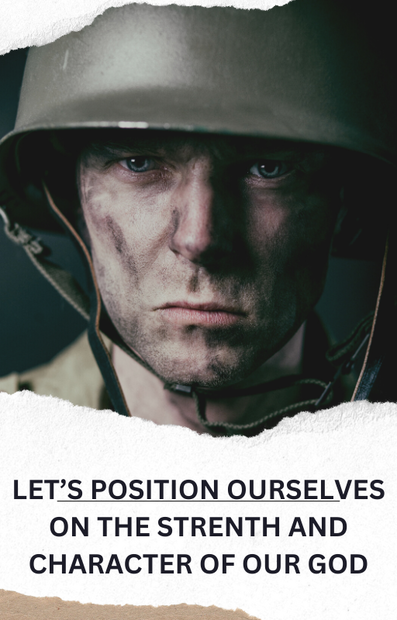 Jonathan and his armorbearer are facing this very deep and craggy ravine. On the other side is the Philistines' garrison. They have heavy armor and a sword and shield, and Jonathan is proposing to mountain climb. On one side, it was very slippery, and the other side hurtful. In order to get to the Philistines, they will have to be in pain, carry everything they have while perhaps painfully climbing down one side and risking a slippery fall up the other. There is nothing about this situation that speaks of human wisdom, experience or expertise. But Jonathan's focus is not on the challenges and impossibilities, it is on the need and the great God who can fill it. You have to notice his wording here to his armorbearer—he doesn't say that God told him to do this. He doesn't say that God gave him this plan. He doesn't say that God has told him He would help him. He just knows His God. He knows how merciful and powerful God is. He knows that God's favor rests on the righteous. He knows God's deep compassion for those who are broken, hurting and oppressed. He knows that God is so vast and His power so unlimited that it makes absolutely no difference how much “help” God receives on our end, it is enough. And he knows the inheritance that he had already received as a gift from God to God’s people. The land of promise was theirs already. So he says, “It may be that the Lord will work for us. For nothing restrains the Lord from saving by many or by few.” Is there a ravine in your life? Do you see an enemy stronghold, an impregnable fortress? Does the enemy taunt from across the chasm, “Look, this chasm is too deep, you are too clumsy, you aren't strong enough, you don't have the right equipment, you don't have enough people, you don't have enough experience, you don't have a plan, you haven't heard that God will help you this time! If you cross that chasm, you can see that you risk falling. You can see that it will be painful. And you can clearly see that the enemy's fortress is indestructible to you. But where is your focus? Is it on your failings? Is it on your weakness? When the enemy taunts his lies in your head, do you look at yourself and say, “yes, I'm puny. I'm weak. There's no way I can cross that chasm. There's no way I can have victory over that sin. It's too hard. It's too deep. I'm going back to my hole.” Or is your focus on the strength and character of your God? “So his armorbearer said to him, 'Do all that is in your heart. Go then; here I am with you, according to your heart.' Then Jonathan said, 'Very well, let us cross over to these men, and we will show ourselves to them. If they say thus to us, 'Wait until we come to you,' then we will stand still in our place and not go up to them. But if they say thus, 'Come up to us,' then we will go up. For the Lord has delivered them into our hand, and this will be a sign to us.” v. 7-10  So here's Jonathan's plan. Because he doesn't know if God's going to help them, he has decided that the best way for God to give him a sign that they will have victory is to go all the way to the bottom of the ravine, stand there, and make sure the Philistines can see them. They are losing the element of surprise. They are giving their enemy the hilltop advantage. Jonathan is basically turning their situation into the worst military move you can make and giving God the opportunity to gain as much glory as possible out of the situation. And if the Philistines respond with a desire to fight with their advantage, that's God's sign that He is going to give the Philistines into their hand. And while it seems that Jonathan is going into this without any promise at all, there is one promise that is hidden to us, but fully present with him. He walks with this promise. The whole meaning of his name is infused with this promise: Jonathan. “The Lord has given.” It is a statement of fact. Jonathan knew the inheritance that God had given him, and the Philistines had no right to be on their land. God had given them this inheritance, God had given the responsibility to His people to protect and guard it, and it was God’s job to establish His kingdom. Jonathan knew intimately and walked in his identity as a child of God, a Prince of Kingdom that could never be taken away or revoked. His kingship had been revoked by the actions of his father. But his place in the kingship of God could never be revoked. Jonathan walked in faith positioning himself on the free gift of God already and irrevocably granted him. The gift of God, the inheritance given to the people of God had nothing to do with their ability, strength, or worth in comparison to others. It had everything to do with God’s glory and love for all of mankind. There is a free gift of God that has been given for you. The Bible says that “while we yet sinners, Christ died for us.” It says that the consequences of our sin are eternal death and bondage to an evil and oppressive enemy, but that “the free gift of God is eternal life in Christ Jesus our Lord. When Jesus died on the cross, he set you free from the power of the enemy. The Bible says that if we repent and turn away from practicing sin, declare “with our mouth Jesus is Lord and believe in our hearts that God has raised Him from the dead, we shall be saved.” It says that God showed His own love for us by giving us His very own son to rescue us from the power and bondage of sin and give us an indestructible and eternal inheritance in God's family forever! When we walk in faith by positioning ourselves on the free gift of God in Christ, we can claim back the strongholds of sin and destruction in our lives. “Sin no more has dominion over us.” (Rom. 6:14) Not only that, but God has a plan for the world to see His glory, for our families, our workspaces, our communities and neighbors to see His glory and to come to the free gift of Christ! Let's go back to our story and we what God does with a person who stands on God's character and inheritance: “So both of them showed themselves to the garrison of the Philistines. And the Philistines said, 'Look, the Hebrews are coming out of the holes where they have hidden!.' Then the men of the garrison called to Jonathan and his armorbearer, and said 'Come up to us, and we will show you something!' Jonathan said to his armorbearer, 'Come up after me, for the Lord has given them into the hand of Israel. And Jonathan climbed up on his hands and knees with his armorbearer after him; and they fell before Jonathan. And as he came after him, his armorbearer killed them. That first slaughter which Jonathan and his armorbearer made was about twenty men within half an acre of land. And there was terror in the camp, in the field, and among all the people. The garrison and the raiders also trembled; and the earth quaked, so that it was a very great trembling. Now the watchmen of Saul in Gibeah of Benjamin looked, and there was the multitude, melting away; and they went here and there. Then Saul said to the people who were with him, 'Now call the roll and see who has gone from us.' And when they had called the roll, surprisingly, Jonathan and his armorbearer were not there. And Saul said to Ahijah, 'Bring the ark of God here (for at that time the ark of God was with the children of Israel). Now it happened, while Saul talked to the priest, that the noise which was in the camp of the Philistines continued to increase; so Saul said to the priest, 'Withdraw your hand.' Then Saul and all the people who were with him assembled, and they went to the battle; and indeed every man's sword was against his neighbor, and there was very great confusion. Moreover the Hebrews (Israelites) who were with the Philistines before that time, who went up with them into the camp from the surrounding country, they also joined the Israelites who were with Saul and Jonathan. Likewise all the men of Israel who had hidden in the mountains of Ephraim, when they heard that the Philistines fled, they also followed hard after them in the battle. So the Lord saved Israel that day....” v. 11-23a God gives Jonathan and his armor-bearer great strength to battle, and then sends an earthquake, terror and confusion to their enemies! No longer is it God's people who are trembling, it is their enemies. All the terrified Israelites jump out of their hiding spots. All the Israelites who are in the Philistines' camps, whether traitors or captives, join in to fight on the Lord's side! Everyone can see that the battle has been decided. And what about them being weaponless and unskilled in war? God has that covered too! He causes the enemy to use their own swords against one another in their great confusion and terror. God doesn't need what you don't have—he wants you to give everything you've got. The battle against our enemy is already decided. There is already victory that has been decided in your favor. God's Word tells us that we as believers in Christ have already been given everything that has to do with life and godliness (2 Peter 1:3). We don't wrestle against flesh and blood---people aren't our enemies, the devil is. Evil is. Sin is. It says in 2 Cor 10:3, that though we walk in our bodies, the weapons that we fight with in this war aren't physical weapons. They aren't fighting words. They aren't manipulations. They are spiritual weapons and armor---truth, salvation, the Word of God, prayer, the gospel, Jesus' righteousness. It says that these tools of our warfare are “mighty in God for the purpose of pulling down strongholds, casting down arguments and every high thing that exalts itself against the knowledge of God by taking every thought captive to make it obedient to Christ.” The battle is to win our minds, thoughts, and hearts. It is to win the minds thoughts and hearts of our families, of our spouses, of our friends and neighbors. When we were facing our business crisis, when we owed money we could never raise in time, God came in time. As the date approached, I felt in my spirit that we were to pay the money anyway. We wrote out our checks to the state and the IRS for $10,000, addressed and stamped them, and sent them in the mail, praying as we let them go into the blue, mail slot. On April 15th, I walked to our post office and input the vintage combination lock into our slot, reached in and pulled out a check, written out to our company, for $10,000. It had never been in our accounts because it was a retention check---one that would be retained for an extra length of time, in our case, for a year. For whatever reason, it had not been entered into our books or billed out. God is not slow concerning his promises, as some counter slowness, but He is patient toward us (2 Peter 3:9). If he seems to wait, wait for Him. If He seems absent, cry out to Him. Examine your heart, walk in obedient faithfulness! He will come. God always keeps His promises. What do we do when we are faced with impossible odds, failing leadership, aching needs, horrible oppressions, and a fight that is being forced on us, whether we can handle it or not? We... Know our God Focus on the Size and Character of our God Give Everything We Have Position Ourselves on the Free Gift of Jesus Christ and our Inheritance with His people Pull Down the Strongholds so We Can Walk in Freedom!
0 Comments
There was also a prophetess named Anna, the daughter of Phanuel, of the tribe of Asher, who was well along in years. She had been married for seven years, and then was a widow to the age of eighty-four. She never left the temple, but worshiped night and day, fasting and praying. Coming forward at that moment, she gave thanks to God and spoke about the Child to all who were waiting for the redemption of Jerusalem. Luke 2:36-38 “Daddy’s home!” the high-pitched, jubilant cry of my little sister rent through the air of our larger, middle-class home. Pulling her nose and hands off the panes of the bay window overlooking our driveway, her cry was echoed by less than jubilation. The repeated phrase bore more the sound of a panic-stricken, pubescent middle-school boy. While the fun began with the advent of my father, so did the ensuing scramble of “pick-up time.” It was a time that Mom had tried to instill in us, and was supposed to initiate at 4pm so that my dad could come home to a clean house, a warm dinner, and an excited family waiting to welcome him, grateful for the long hours he had put in at the office. Quite honestly, it was a time that rarely began until we heard the familiar sound of his car in the driveway. Beth reached as high as she could with her chubby fingers and swung the door open toward herself, backing up with it until the opening was wide enough to run through. She rushed out to greet him, heedless of the door standing open, the cold air springing to take advantage of osmosis, or the rush of adrenaline and activity behind her to make preparations. Legs and duplos must we swept off the floor, laundry and toys on the stairs taken up to the rooms, schoolbooks stuffed haphazardly into shelves, sometimes never to be found again, and a multitude of small items that no one knew where they belonged and would find their home in any stray crack or cranny, couch cushion or basket. If the item was too large, it would find its way to the basement ping-pong table, which was conveniently large enough to hold a massive amount of confused items. It is not always beneficial when kids are “helping” to clean, after all. The fun would begin when Dad was home and all the boring work of the day was over. Perhaps he would play games with us, hide and seek in the dark, cards, or wrestle in a tickle battle on the floor. Surely he would read us a missionary story and a chapter from a fiction novel, using all the right voices and sound effects. Undoubtedly, he would pick out his stack of books to read and try to eat his cheerios in peace before bed. That was my favorite time. When everyone was else was gone, it was my turn to find any questions I could come up with to spark a conversation and gain one-on-one attention. My mom used to say that she loved it when Dad would come home, because he would chase the demons away. All the frustration of dealing with us, all the mess and the work, the bad attitudes and the arguments—Dad would come home and make it all better. Every day we waited. Every day we listened for the sounds that meant life would be great again. I imagine that in a very small way, this is a bit of the expectancy of the time in which Anna lived. While our difficulties were vastly more bearable with the love we experienced in our family, the darkness of the oppression that Anna lived under with the Roman occupation and extreme abuse of her rights she likely suffered because of her gender, her social status and her ethnicity would have greatly intensified the longing she and her fellow Israelites would have felt for the coming Redeemer. Here we see a repeat of a name that we may be familiar with from the Old Testament—that of Hannah, the mother of Samuel. In Hebrew, her name is “Channah,” and in Greek it is “Anna.” Her name means to be favored by grace. A more literal picture of the Hebrew word is that of a benefactor leaning toward someone who is coming with a humble request in order to bless and give to them their needs. Anna’s name is meant to bring to mind the story of her namesake, Hannah, in 1 Samuel 1, who was bereft of children. In her grief, she fasted, prayed, and shed tears with loud groanings “to the one who could rescue” her in her situation, and she “was heard because of her obedience (Heb. 5:7).” Asking for a child, she vowed to dedicated him for a lifetime service as a Nazirite if the Lord would hear her request. Together with her husband, Elkanah, “God is Redeemer,” they kept their vow and dedicated their young son, Samuel, “Heard of God,” for a lifetime of Nazir, or sacred and set apart service to the Lord. Luke tells us that Anna was the daughter of Phanuel, and does not list her husband. Phanuel’s (Peniel) name means “the face of God,” and is meant to bring to mind the story of Jacob wrestling all night with the angel of the Lord in order to blessed by God. At daybreak, Jacob is blessed and given a new name. Realizing at once that he had in fact been wrestling with the Lord Himself, Jacob “called the place Peniel, saying, “It is because I saw God face to face, and yet my life was spared. The sun rose above him as he passed Peniel....(Gen. 32:30-31).” Anna came from the tribe of Asher, which means “happy/blessed,” and “level/straight,” which refers us back to the story of Leah and her wrestling (Gen. 30:8) with her sister for her husband’s love and the favor of God. After giving birth to Asher, Leah named him “happy” or “blessed” because she believed that her happiness would be guaranteed now because she had been given children. Luke informs us further that Anna was “χήρα,” which is to be bereft, sterile, barren, or stripped of inhabitants or riches. While she was a widow in our common vernacular, this word was also used of those who had no provision or protection for themselves, but relied solely on God’s provision for them. It also included women who were single and without family support, or those who had been set apart under a Nazir vow and were, therefore, bereft and dependent upon God for their needs (Ex. 38:8, 1 Sam 2:22). Anna very well may also have served in the same capacity as a ministering woman at the tent of meeting, which likely included Nazirites as well as Kohathite Levitical women serving and ministering (Ezra 2:65-70, Neh. 7:66-73, 1 Chron. 25:5-6). This group of ministering women would have depicted an early form of what would later become the ministering women serving in the church in the order of the “χήρα,” mentioned in Acts 6 and 1 Timothy 5 with its lists of qualifications that rival that of the presbyteroi just mentioned in the book, as well as concluding with the payment given to them, or to those ministering in the word of God, that of double payment. Acts 6 men who were appointed to be sure to wait on tables were likely given the responsibility of administering the payments of currency to these ministering women, since the word for table also carried the idea of banking, and since the Hebraic law and current culture of the day dictated that those who served were to be paid daily. Anna was married for seven years, the Biblical number of completeness. Since she was married a complete amount of time, one would assume that it was surely enough time to have had children of her own. The text, however, shares nothing with us of any children, but rather of her day and night living and ministering in the temple. This indicates that she was childless—bereft in more ways than one. Though the Luke’s account in chapters 1 and 2 show us two other bereft and childless women whom God impossibly blesses with children, one in her old age (Elizabeth) and the other in her youthful virginity (Mary), Anna, whose name would have constantly reminded her of her own hope for children, remained childless. Additionally, being bereft of children after her husband’s death likely would have qualified her for the Levirate law (Deut. 25:5-10), where her deceased spouse’s brother would have been required to redeem her monetarily and then taken her and raised up children for her husband by her. This would ensure that both the widow and the deceased husband would maintain a portion in the land of the Promise. Their name would not be cut off from their people. We find an example of this law as Boaz acted in this capacity as a kinsman-redeemer in the story of Ruth. If Anna had consented to this Levirate arrangement, she would not have remained a widow or bereft, and it may be that though that was available, she instead devoted herself as a Nazirite to wait for her redemption from God, instead. We must prepare the way for our Redeemer!  Anna must have thought of the children her namesake had asked for and been given by God. Hannah was “heard of God.” No doubt Anna’s own lifestyle of fasting and prayer included not a few tears for her own lack. She may not have felt “heard,” and given the fact that she remained single until old age, she likely had no more hope for being “heard of God” in this capacity. So where was God’s favor? Where was His grace on her life? Without children and as a widow, she would have been presumed by others to be cursed for sin of which perhaps only God knew. And yet Luke makes it plain that she is a godly woman, ministering in the same way we see the apostles “ministering before the Lord” in Acts 13:2 in a liturgical sense. However, just as her predecessor Hannah did not drown herself in sinful pleasures or addictions, but rather poured out her soul in faithful service and ministry to the Lord, we see Anna so doing. We don’t see her remain idle in her sorrow. Instead, we see her invest in others and allow herself to be so filled with God that she regularly prophesied. We see her dedicating herself to the ministry, and spending her days and nights fasting and praying and proclaiming God’s Word. It is highly likely that the very people to whom she had prophesied regularly were many of the very ones whose hearts were waiting expectantly for the “redemption” to come. Just as her descendance from Asher suggests, we see her “preparing the way for the Lord, and making “straight paths for Him. We may find ourselves in a situation similar to Anna. Do you find a lack somewhere, a bereftness? A removal or stripping of your resources? Does this cause you pain and grief? What do we do when our resources are removed? Do we spend our energies out in self-pity, “look anxiously about” us, or desperately search for ourselves the resources we think we must have in order to find ourselves rescued? Or do we start waiting upon the Lord as his servants, with praise, worship, fasting and prophesying the divine message of expectancy to a dark and waiting world? We must wait expectantly on the Lord!  Familiar with her own need and lack of a redeemer for her bereft state, attuned and practiced to the voice of the Holy Spirit, Anna was ready to recognize the Redeemer when she saw Him through the power of the Holy Spirit. Anna knew that God gives his people a more lasting portion eternally, and she was happy to trade physical redemption for spiritual redemption by her Redeemer. In the midst of Anna’s day-to-day service, she experienced a favor far greater than that for which she may have longed—that of seeing the face of her God and living to tell of it! While this was true of Anna, it is also true of us. As we go about our daily ministry in our homes, our churches and our communities and most especially in our day and night ministry to the Lord Himself, He meets us in our day-to-day with His Living Presence. As we practice listening to the voice of the Spirit and walking in obedience, we become more and more attuned to the words that direct us into the situations He wants to use to bring us favor: Yet the Lord longs to be gracious to you; therefore, he will rise up to show you compassion. For the Lord is a God of justice. Blessed are all who wait for him! People of Zion, who live in Jerusalem, you will weep no more. How gracious he will be when you cry for help! As soon as he hears, he will answer you. Although the Lord gives you the bread of adversity and the water of affliction, your teachers will be hidden no more; with your own eyes you will see them. Whether you turn to the right or to the left, your ears will hear a voice behind you, saying, “This is the way; walk in it.” Isaiah 30:18-21 |
AuthorHalley Faville lives with her husband and children in their mountain home in Oregon. Archives
May 2024
Categories
All
|

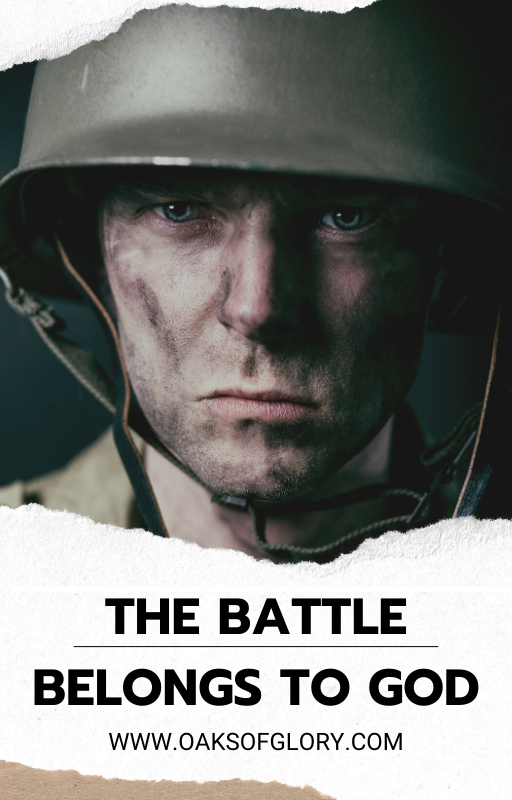


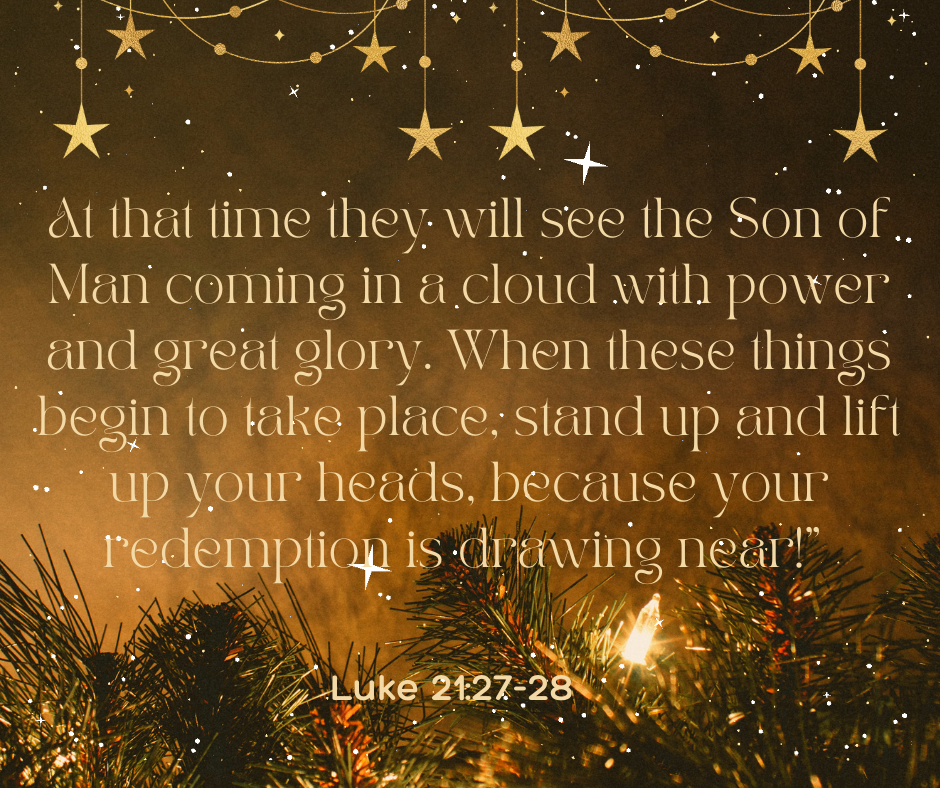

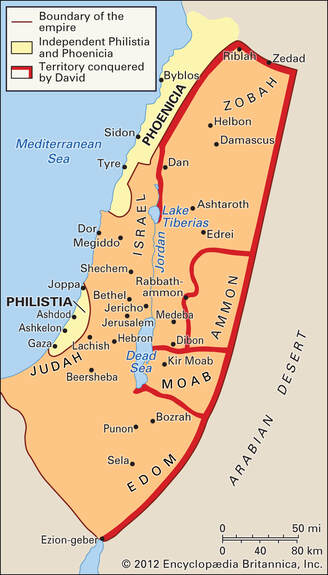



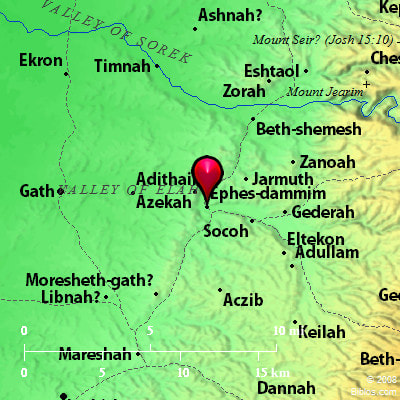
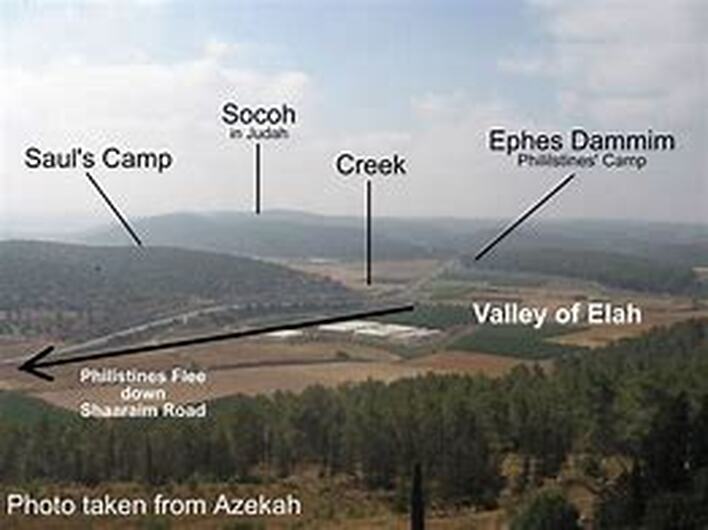


 RSS Feed
RSS Feed